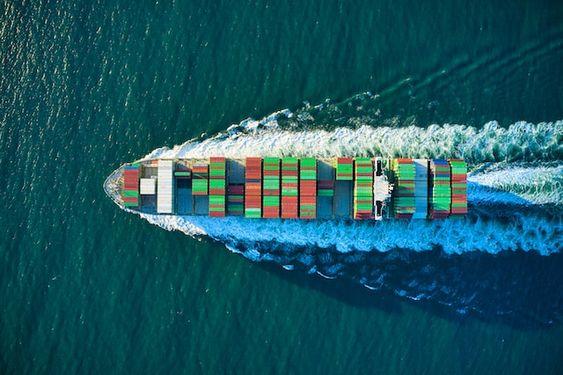

Table of Contents
- Introduction
- Definition and Purpose
- Types of Transit Insurance
- Who Needs Transit Insurance?
- Coverage Provided by Transit Insurance
- Exclusions in Transit Insurance
- Importance of Transit Insurance
- Claims Process for Transit Insurance
- Considerations When Purchasing Transit Insurance
- Conclusion
- Faq's
Introduction
Relocating to a new home or a new location can be a thrilling adventure, but it also comes with the potential risk of your prized possessions being damaged or lost in transit. As you entrust your valuables to packers and movers to facilitate a smooth transition, it's essential to have a safety net in place to protect your investments. This is where transit insurance steps in, offering a comprehensive solution to mitigate the financial and emotional impact of unforeseen events during the relocation process.
Transit insurance is a specialised form of coverage designed to protect goods in transit, whether by land, sea, or air. By understanding the importance of transit insurance and the various types of coverage available, you can make an informed decision to safeguard your valuables and ensure a stress-free moving experience. In this article, we will delve into the intricacies of transit insurance, exploring its benefits, coverage options, and factors to consider when selecting a policy that suits your specific needs.

Definition and Purpose
Transit insurance is a policy that provides financial protection against loss or damage to goods while they are being transported from one location to another. This coverage is crucial for businesses that ship products, as well as for individuals sending valuable items. The primary purpose of transit insurance is to safeguard against unforeseen events that could result in financial loss, ensuring that the insured party can recover costs associated with damaged or lost goods. Without transit insurance, businesses and individuals would bear the full financial burden of any losses or damages incurred during transportation, which could have significant consequences for their operations and financial stability.
Types of Transit Insurance
 Types of Transit Insurance
Types of Transit Insurance
Transit insurance can be categorised into several types based on the nature of the goods, the mode of transport, and the frequency of shipments:
Marine Transit Insurance: This type covers goods transported over water, including shipping by cargo vessels, ferries, or other marine vehicles. It protects against risks such as sinking, collision, piracy, and damage from seawater. Marine transit insurance is essential for businesses involved in international trade, as it covers goods during the ocean voyage and while being loaded or unloaded at ports.
Inland Transit Insurance: This policy covers goods transported over land, whether by truck, rail, or other means. It protects against risks like accidents, theft, natural disasters, and damage during loading and unloading. Inland transit insurance is crucial for businesses that rely on domestic transportation to move their goods.
Single Transit Policy: Ideal for occasional shipments, this policy covers a single journey or one-time transit operation. It is cost-effective for businesses that do not frequently ship goods and provides coverage for a specific trip.
Annual Transit Policy: This is suitable for businesses that regularly transport goods. It provides coverage for multiple shipments over a specified period, usually a year. Annual transit policies offer convenience and cost savings compared to purchasing individual policies for each shipment.
Goods in Transit Insurance: This policy is designed for businesses that transport goods using their vehicles or through third-party carriers. It covers loss or damage to goods during transit, ensuring financial protection against various risks. Goods in transit insurance is particularly useful for businesses that own their transportation assets or use a mix of in-house and outsourced shipping services.
Who Needs Transit Insurance?
Transit insurance is essential for a wide range of stakeholders, including:
Businesses
Companies that regularly ship small or large products should invest in transit insurance to protect their inventory and financial interests. This includes manufacturers, wholesalers, retailers, and e-commerce businesses that rely on efficient and secure transportation to deliver goods to customers.
Individuals
People sending valuable items, such as antiques, heirlooms, or collectibles, can benefit from transit insurance to safeguard against potential loss or damage. This coverage is especially important for individuals who are not familiar with the shipping process or are sending items to distant locations.
Importers and Exporters
Businesses involved in international trade often require transit insurance to comply with regulations and protect their goods during cross-border shipments. Many countries have specific requirements for importers and exporters to have adequate insurance coverage in place.
Third-Party Carriers
Companies that provide shipping services should have transit insurance to cover the goods they transport on behalf of clients. This protects the carrier from liability in case of loss or damage and helps maintain trust with their customers.
Coverage Provided by Transit Insurance
Transit insurance policies offer comprehensive coverage against a variety of risks that goods may encounter during transportation.
Key coverage components include:
Natural and Man-Made Calamities:
Protection against damage from natural disasters (e.g floods, earthquakes, hurricanes) and man-made events (e.g., explosions, fires, riots).
Accidents and Collisions:
Coverage for damages resulting from accidents during transit, including vehicle collisions, overturning, and derailments.
Loading and Unloading Risks
Insurance that covers damages sustained during the loading and unloading processes, which are critical phases of transportation and often involve the use of heavy machinery and equipment.
Packing and Unpacking Protection
Coverage for damages that may occur during the packing and unpacking of goods, particularly if the insured party is responsible for these tasks.
Theft and Malicious Damages
Protection against theft, whether due to external factors or internal misconduct, as well as damages from intentional acts such as vandalism or sabotage.
Accidental Damages
Coverage for unforeseen accidents that may lead to damage, ensuring financial impact is minimised. This includes protection against breakage, leakage, and contamination.
Delay in Delivery
Some transit insurance policies may provide coverage for losses resulting from delayed delivery, such as penalties or lost sales opportunities.
Also Read: Insurance Term Meaning in Real Estate - Guide
Exclusions in Transit Insurance
While transit insurance provides extensive coverage, certain exclusions may apply. Common exclusions include:
Intentional Damage: Damage caused deliberately by the insured party is typically not covered, as this would be considered fraudulent behavior.
Poor Packaging: Damage resulting from inadequate packaging or preparation for transit may not be compensated, as the insured party is expected to take reasonable precautions to ensure the safety of the goods.
War Risks: Losses arising from war, terrorism, or civil unrest are generally excluded, as these events are considered beyond the control of the insurer and may be covered by specialized policies.
Temperature-Sensitive Goods: Items that require specific temperature conditions may not be covered if damaged due to temperature fluctuations, unless the policy specifically includes coverage for temperature-controlled transportation.
Normal Wear and Tear: Damage due to regular use or aging of goods is usually excluded, as transit insurance is designed to cover unexpected and sudden losses rather than gradual deterioration.
Inherent Vice: Damage caused by the inherent nature or quality of the goods, such as spoilage of perishable items or leakage from containers, may not be covered.
Importance of Transit Insurance
Financial Protection
The primary benefit of transit insurance is financial protection. In the event of loss or damage, the insured party can recover costs, which is crucial for maintaining cash flow and business operations. This protection is particularly important for businesses that rely on timely delivery of goods to meet customer demands and maintain their reputation in the market.
Risk Management
Transit insurance plays a vital role in risk management. By understanding the potential risks associated with transporting goods, businesses can make informed decisions about their insurance needs. This proactive approach helps mitigate financial losses and enhances overall operational resilience. Transit insurance allows businesses to transfer the risk of loss or damage to a third party, the insurer, which can provide greater stability and predictability in their operations.
Compliance and Credibility
For businesses engaged in international trade, having transit insurance can be a requirement for compliance with trade agreements and regulations. Moreover, it enhances a company's credibility, demonstrating financial responsibility and commitment to safeguarding customer interests. Customers and business partners may be more likely to work with companies that have adequate transit insurance coverage in place, as it signals their reliability and professionalism.
Peace of Mind
Knowing that goods are insured during transit provides peace of mind to businesses and individuals. This assurance allows stakeholders to focus on their core operations without the constant worry of potential losses. Transit insurance helps reduce stress and anxiety associated with shipping valuable goods, allowing businesses to make decisions based on strategic considerations rather than fear of financial consequences.
Also Read: Home Loan Insurance: Protection Plan vs Term Insurance
Claims Process for Transit Insurance

Filing a claim under a transit insurance policy involves several steps:
Immediate Notification: The insured party should promptly notify the insurance provider about the loss or damage. Timely reporting is crucial to preserve recovery rights and ensure that the claim is processed efficiently.
Documentation:
- Essential documents required for filing a claim typically include:
- Original invoice and packing list
- Bill of lading or receipt endorsed with damage details
- Damage certificate from the carrier
- Surveyor's report assessing the loss or damage
- Photographs of the damaged goods and packaging
- Proof of value for the lost or damaged items
Claim Assessment: The insurance company will appoint a surveyor to evaluate the extent of the loss or damage. This assessment is critical for determining the compensation amount and ensuring that the claim is valid under the policy terms.
Claim Settlement: Once the claim is approved, the insurer will process the payment based on the policy terms and the surveyor's findings. The settlement amount may be based on the actual value of the lost or damaged goods, or it may be subject to deductibles or limits specified in the policy.
Subrogation: In some cases, the insurer may pursue subrogation, which involves recovering the paid claim amount from a third party responsible for the loss or damage, such as the carrier or a negligent party.
Considerations When Purchasing Transit Insurance
When selecting a transit insurance policy, several factors should be taken into account:
Nature of Goods: Consider the type of goods being transported, as different items may require specific coverage. For example, perishable goods may need temperature-controlled transportation, while fragile items may require additional packaging protection.
Mode of Transport: The chosen mode of transport (land, sea, air) can influence the risks involved and the type of insurance needed. Different policies may be required for each mode of transport, or a comprehensive policy may cover multiple modes.
Frequency of Shipments: Businesses that ship goods frequently may benefit from an annual policy, while occasional shippers might opt for a single transit policy. The frequency of shipments can impact the cost and coverage of the insurance policy.
Coverage Needs: Assess the extent of coverage required based on potential risks and the value of the goods being transported. Higher-value items may require more comprehensive coverage or additional riders to the base policy.
Exclusions and Limitations: Carefully review the policy's exclusions and limitations to ensure that it aligns with the specific risks associated with the goods being transported. Understanding the policy's terms and conditions is crucial to avoid gaps in coverage.
Cost: Compare quotes from different insurers to find a policy that offers the best coverage at a competitive price. Consider factors such as deductibles, limits, and premium costs when evaluating different policies.
Reputation and Financial Stability of the Insurer: Choose an insurance provider with a strong reputation for customer service, claims handling, and financial stability. This ensures that the insurer will be able to fulfill its obligations in the event of a claim.
Conclusion
Transit insurance is an essential component of risk management for businesses and individuals involved in the transportation of goods. By providing comprehensive coverage against a variety of risks, transit insurance protects financial interests and ensures peace of mind during the shipping process.
Whether through marine, inland, or specialised policies, having the right insurance in place is crucial for safeguarding valuable cargo against unforeseen events.
As businesses increasingly rely on global supply chains, understanding and investing in transit insurance becomes paramount for maintaining operational integrity and financial stability.
Transit insurance not only provides financial protection but also enhances the credibility and competitiveness of businesses in the market. By demonstrating their commitment to safeguarding customer interests, companies can build trust and loyalty with their clients, leading to long-term success and growth.
As the global economy continues to evolve, the importance of transit insurance will only increase, making it a vital tool for businesses looking to navigate the complexities of modern transportation and logistics.
explore further
Latest from Contemporary ideas
More from Innovations
Resources
Dwello, for every home buyer, is a way to go from 'I feel' to 'I know', at no extra cost.


